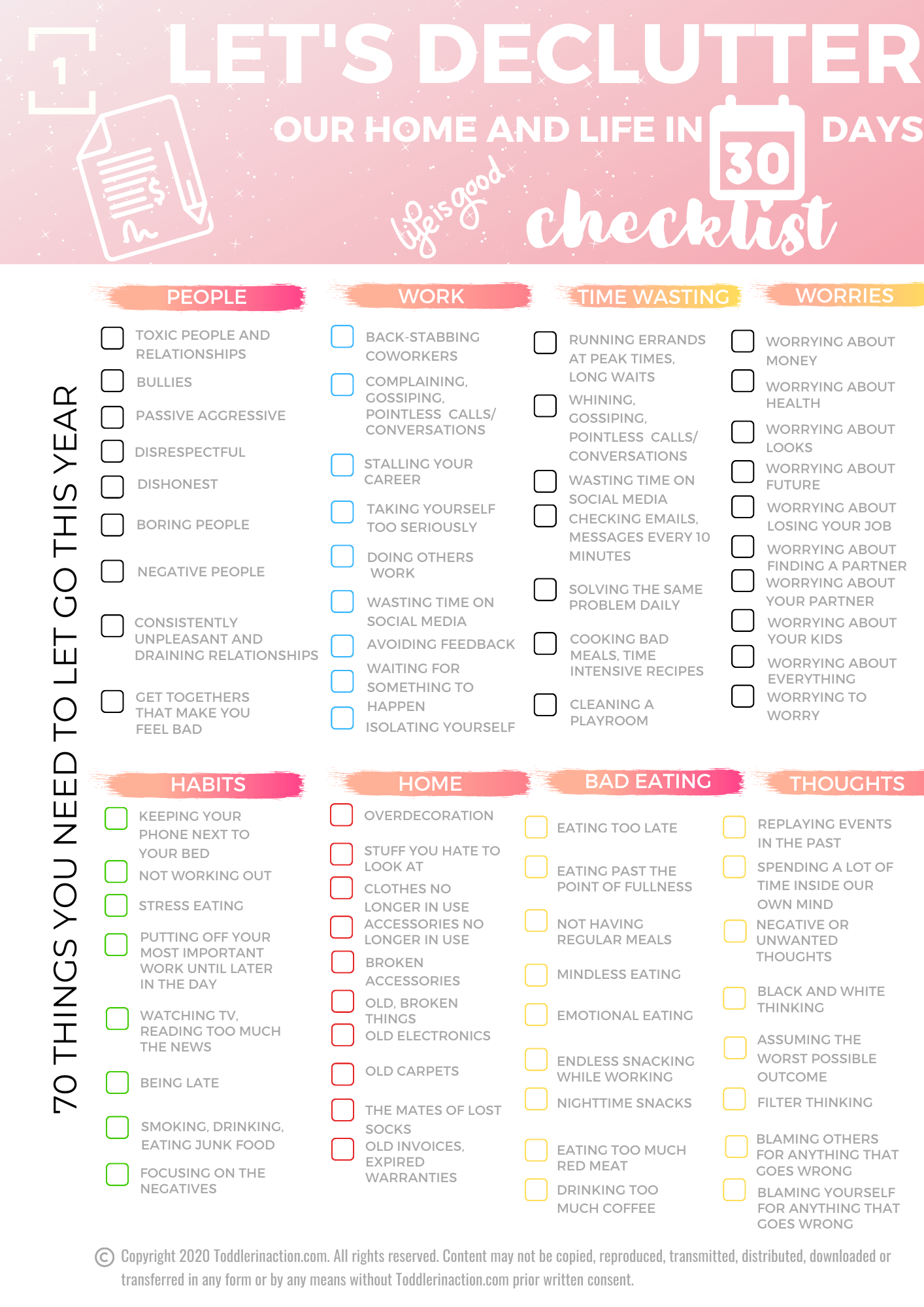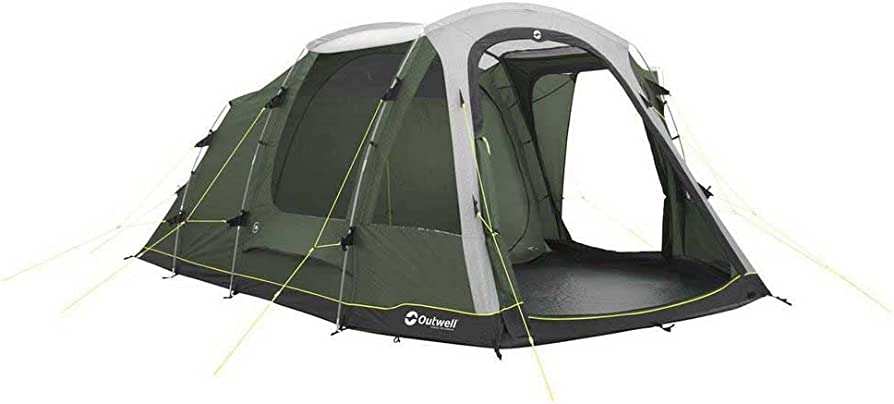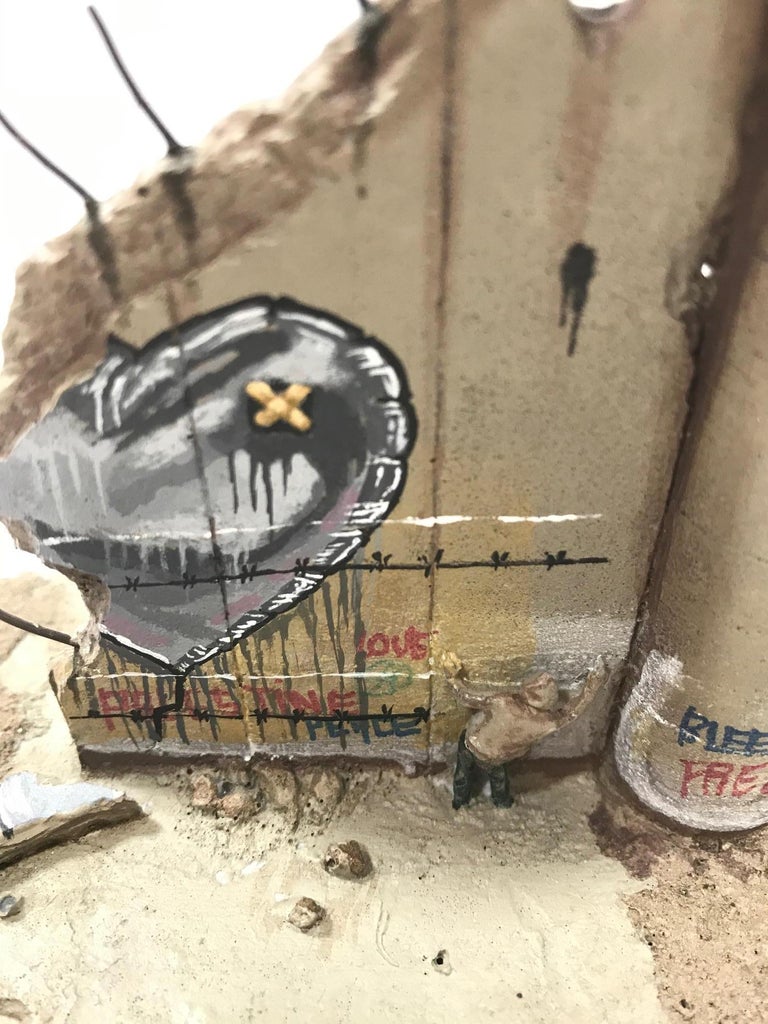A 30-Day Minimalist Challenge: Declutter Your Life

Table of Contents
Week 1: Assessing and Planning Your Minimalist Journey
Before diving into the physical act of decluttering, it's crucial to lay the groundwork. This first week focuses on understanding minimalism and creating a personalized plan for success.
Understanding Minimalism: Defining Your Minimalist Path
What does minimalism mean to you? Is it about drastically reducing the number of physical items you own? Or is it more about simplifying your schedule and commitments, leading to a more intentional and less stressful life? Perhaps it's a combination of both.
- Explore different interpretations of minimalism: Research online, read books, and watch videos to understand the various approaches to minimalist living. Find what resonates most with your personal values and aspirations.
- Consider your personal values and goals: What are your priorities in life? How does clutter hinder your ability to achieve those goals? Defining your values will help guide your decluttering decisions.
- Set realistic expectations: Don't try to overhaul your entire life in a week. Start small, set achievable goals, and celebrate your progress along the way. This 30-day minimalist challenge is about progress, not perfection.
The Power of Decluttering: Benefits Beyond a Tidy Home
Decluttering isn't just about tidying up; it's a powerful tool for improving your mental and physical wellbeing. By reducing physical clutter, you create space for a clearer mind and a more peaceful existence.
- Improved focus and productivity: A clutter-free environment reduces distractions, allowing you to concentrate better on tasks and projects.
- Reduced stress and anxiety: The visual and emotional weight of clutter can significantly contribute to stress and anxiety. Decluttering helps alleviate this burden.
- More free time: Less clutter means less time spent cleaning, organizing, and searching for things. This frees up valuable time for activities you enjoy.
- A cleaner, more organized living space: A clean and organized home fosters a sense of calm and control, contributing to a more positive and relaxing atmosphere.
Creating a Decluttering Plan: Your Personalized Roadmap to a Clutter-Free Life
A successful 30-day minimalist challenge requires a well-defined plan. This plan should be personalized to fit your lifestyle and schedule.
- Start small: Don't try to tackle everything at once. Begin with a small, manageable area, like a single drawer or shelf.
- Identify areas to focus on first: Prioritize the areas that cause you the most stress or inconvenience. This might be a cluttered closet, an overflowing pantry, or a desk piled high with papers.
- Set daily or weekly goals: Break down your decluttering project into smaller, achievable tasks. This will help you stay motivated and avoid feeling overwhelmed.
- Use a checklist: Create a checklist to track your progress and stay organized. This provides a visual representation of your accomplishments and keeps you focused on your goals.
Week 2-3: Tackling the Clutter – Room by Room
Now it's time to roll up your sleeves and get to work! This phase focuses on decluttering your home, room by room. Remember to apply the principles of minimalism you learned in Week 1.
The Bedroom Purge: Reclaiming Your Personal Sanctuary
Your bedroom should be a haven of peace and tranquility. Let's start by decluttering your clothing, shoes, accessories, and bedding.
- The 1-year rule: If you haven't worn or used an item in a year, consider donating or selling it.
- The "one in, one out" rule: For every new item you bring into your home, remove an old one. This helps prevent future clutter accumulation.
- Organize your closet efficiently: Utilize vertical space, use matching hangers, and consider storage solutions to maximize space and organization.
Conquering the Bathroom: A Sparkling Clean and Minimalist Space
Bathrooms tend to accumulate a lot of unnecessary items. Let's declutter your toiletries, makeup, and medications.
- Check expiration dates: Discard any expired products.
- Consolidate similar items: Combine multiple small bottles of shampoo or conditioner into larger containers.
- Utilize storage solutions: Install shelves, drawers, or organizers to keep everything neatly in its place.
Kitchen Cleanse: Streamlining Your Culinary Space
The kitchen is often the heart of the home, but it can also become a breeding ground for clutter. Let's streamline your cookware, dishes, food items, and appliances.
- Donate or sell unused kitchen gadgets: Be honest with yourself – do you really need that egg slicer or that pasta maker you used once?
- Organize your pantry and fridge: Discard expired or unwanted food items and use clear containers to store food efficiently.
- Use clear containers for food storage: This makes it easier to see what you have and prevents food from spoiling.
Living Room Liberation: Creating a Relaxing and Functional Space
The living room is where you relax and spend time with family and friends. Let's declutter the furniture, décor, and entertainment items to create a more peaceful environment.
- Evaluate the functionality and aesthetic appeal of each item: Does each item serve a purpose and enhance the beauty of your space?
- Donate or sell unwanted items: If an item no longer serves a purpose or brings you joy, let it go.
- Organize storage spaces: Utilize storage ottomans, baskets, or shelves to keep items organized and out of sight.
Week 4: Maintaining Your Minimalist Lifestyle
The final week focuses on creating sustainable habits and reflecting on your journey.
Digital Decluttering: Cleaning Up Your Online Space
Decluttering isn't limited to physical spaces; it also extends to your digital life. Let's organize your computer files, emails, and social media accounts.
- Delete unnecessary files: Remove duplicate files, old documents, and unused programs.
- Unsubscribe from unwanted emails: Reduce the number of emails clogging your inbox.
- Limit time spent on social media: Set boundaries and be mindful of how much time you spend scrolling through social media.
Creating Sustainable Habits: Preventing Future Clutter
Maintaining a minimalist lifestyle requires developing sustainable habits to prevent future clutter accumulation.
- Mindful shopping: Before buying something new, ask yourself if you truly need it and if it aligns with your values.
- Regular decluttering sessions: Schedule regular decluttering sessions (e.g., once a month) to prevent clutter from accumulating again.
- Practicing gratitude for what you have: Appreciate the items you own and their usefulness in your life.
The Benefits of a Minimalist Life: Reflecting on Your Transformation
Reflect on the positive changes you've experienced throughout this 30-day minimalist challenge.
- Reduced stress: A clutter-free environment leads to a calmer and more peaceful mind.
- Increased focus: A minimalist lifestyle promotes improved concentration and productivity.
- More free time: Less clutter means less time cleaning and organizing, freeing up time for activities you enjoy.
- A sense of accomplishment: Completing this challenge provides a significant sense of accomplishment and personal growth.
Conclusion:
This 30-day minimalist challenge is a journey towards a simpler, more intentional life. By following these steps and developing sustainable habits, you can declutter your life, create a peaceful home environment, and experience the numerous benefits of minimalist living. Remember, it's not about deprivation, but about intentionality. Start your own 30-day minimalist challenge today and experience the transformative power of decluttering your life! Embrace a minimalist lifestyle and find the freedom and peace you deserve. Start your decluttering journey now!

Featured Posts
-
 White House Meeting Trump And Fed Chair Powell On The Economy
May 31, 2025
White House Meeting Trump And Fed Chair Powell On The Economy
May 31, 2025 -
 Tallon Griekspoors Stunning Victory Over Zverev At Indian Wells
May 31, 2025
Tallon Griekspoors Stunning Victory Over Zverev At Indian Wells
May 31, 2025 -
 Essential Glastonbury Item A Veterans Guide To Budget Friendly Fun
May 31, 2025
Essential Glastonbury Item A Veterans Guide To Budget Friendly Fun
May 31, 2025 -
 Elon Musks Awkward Saudi Encounter With Donald Trump
May 31, 2025
Elon Musks Awkward Saudi Encounter With Donald Trump
May 31, 2025 -
 Rare Banksy Broken Heart Piece To Be Auctioned
May 31, 2025
Rare Banksy Broken Heart Piece To Be Auctioned
May 31, 2025
